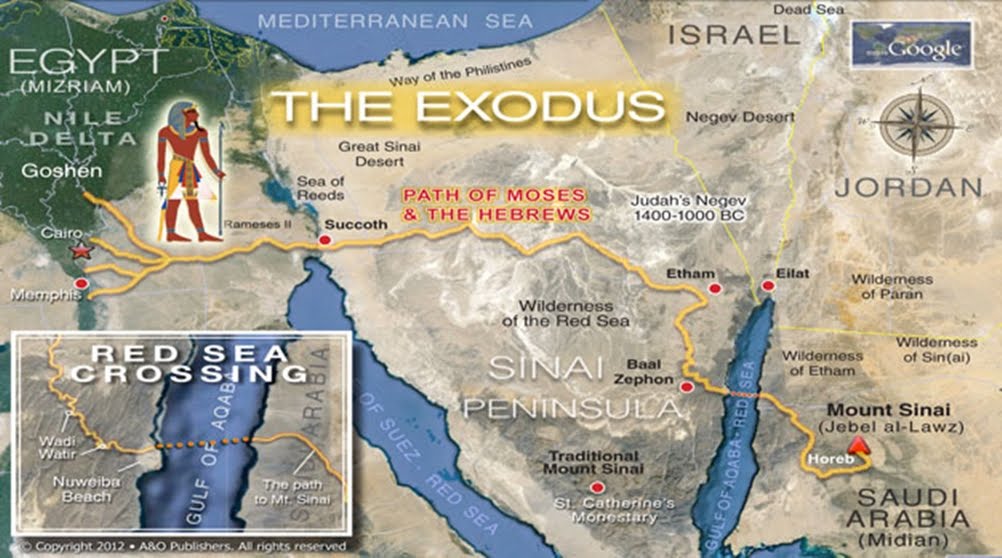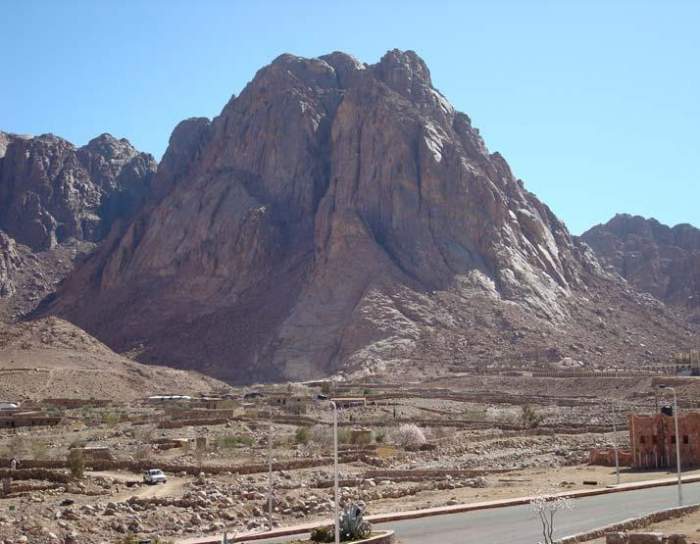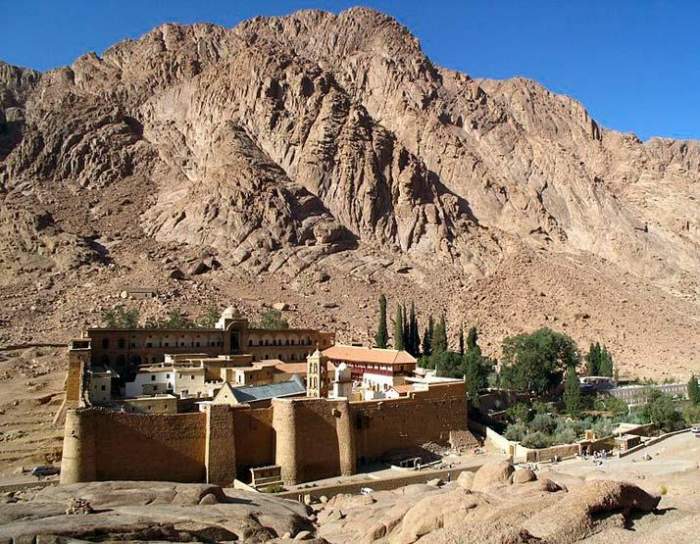In the remote desert of Egypt’s Sinai Peninsula lies a land with immense historical and spiritual significance to the world’s three great monotheistic religions. The Jewish, Christian and Muslim traditions all have deep ties to the landscape and monuments of this region.
Mount Sinai is venerated by the three faiths for it’s relevance to the story of exodus when Moses led the Hebrew people out of Egypt and to one of the greatest miracles known in human history; the parting of the Red Sea.

A map showing the route of Exodus.
A Conversation with God
Southern Sinai’s Gebel Musa (“Mountain of Moses”) is spiritually and historically significant for Christians, Jews, and Muslims. In the fourth century C.E., Coptic Christians came to the mountain and founded a small church at the spot where it was believed God spoke to Moses in the form of the burning bush. The Quran tells us this story in chapter Ta-Ha.

Mount Musa, Southern Sinai, Egypt.
Later on, the site evolved into St. Catherine’s Monastery, revered by many as one of the most sacred places on Earth. The monastery has survived many groups of desert marauders over the past 1,500 years. Muslims left it intact even during the Crusades because it honors one of Islam’s most important prophets.

The place where the children of Israel waited for Musa for 40 days.
First published: September 2018